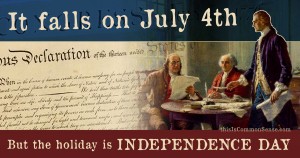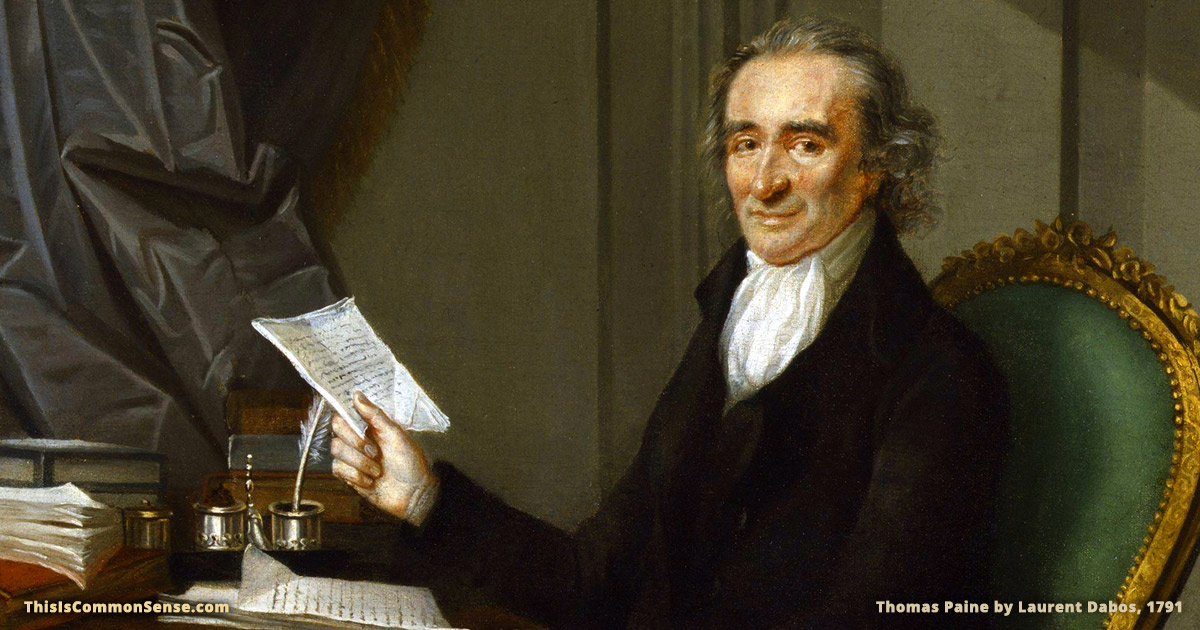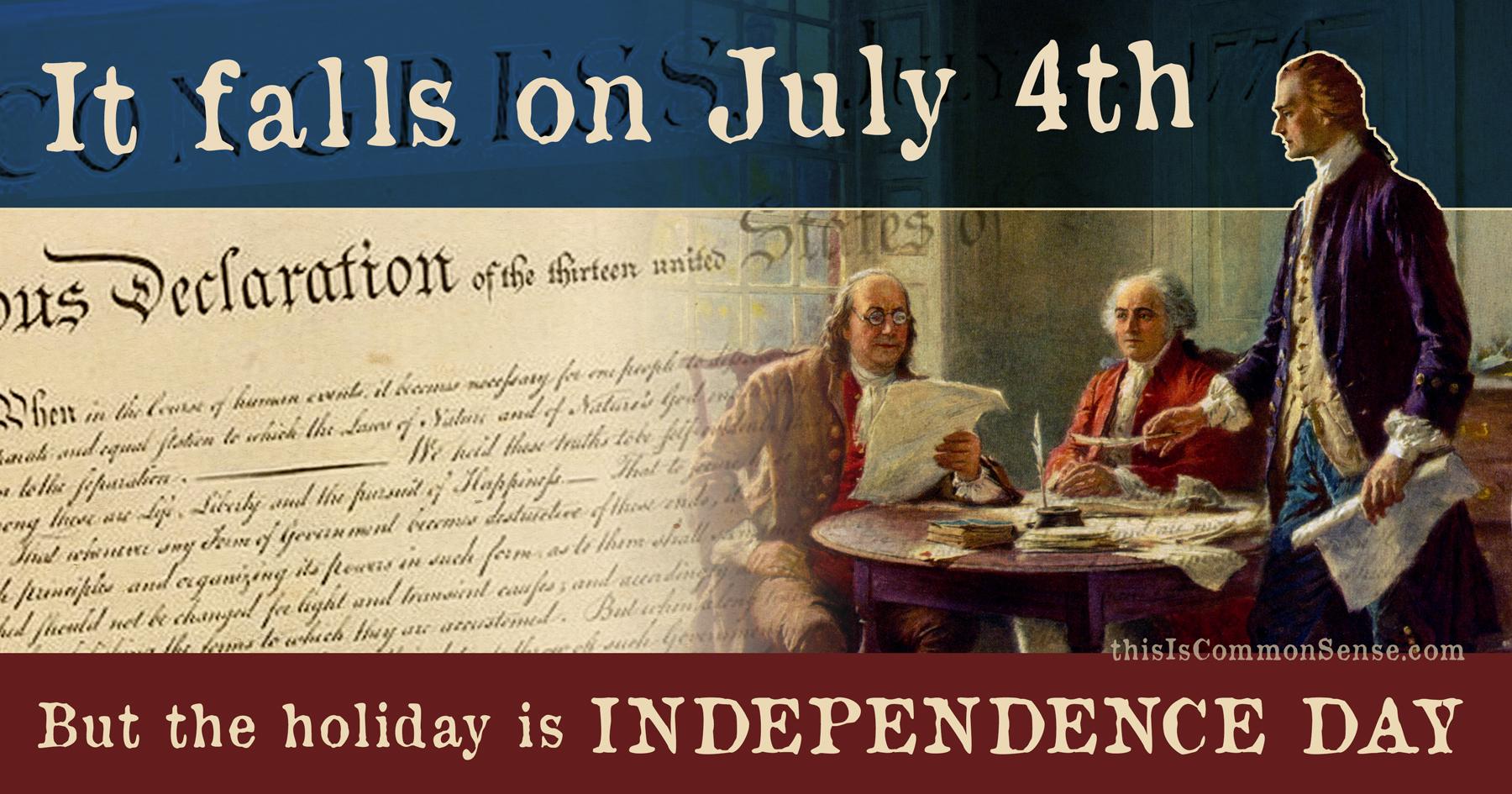The American Dream is dead.
Has been for at least a year . . . or so we’re told:
- “American Dream Dead,” said the Huffington Post
- “The American Dream is out of reach,” CNN Money
- “The American Dream is Dead, and Good Riddance,” according to a column by Keli Goff at the Daily Beast.
Golly. Have a great July 4th holiday . . . I guess.
That 2014 CNN Money poll found 59 percent of Americans agreed with the statement: “The American dream has become impossible for most people to achieve.”
What is “the American Dream”? What do folks mean when they speak of it?
Historian James Truslow Adams coined the phrase in his 1931 book, The Epic of America:
The American Dream is that dream of a land in which life should be better and richer and fuller for everyone, with opportunity for each according to ability or achievement. It is a difficult dream for the European upper classes to interpret adequately, and too many of us ourselves have grown weary and mistrustful of it. It is not a dream of motor cars and high wages merely, but a dream of social order in which each man and each woman shall be able to attain to the fullest stature of which they are innately capable, and be recognized by others for what they are, regardless of the fortuitous circumstances of birth or position.
Note that Adams wrote of “opportunity for each according to ability or achievement.” He didn’t say “from each according to ability, to each according to need.”
He didn’t suggest a dream world wherein government would wave a magic wand to bestow financial success upon everyone, program by program. In fact, Adams embraced a land of capitalism, but without the cronyism — thus, with some significant measure of equality of opportunity.
President Obama also addressed the American Dream in his 2014 State of the Union speech, only with a different tone. It had “suffered some serious blows,” he summarized. “Over more than three decades, even before the Great Recession hit, massive shifts in technology and global competition had eliminated a lot of good, middle-class jobs, and weakened the economic foundations that families depend on.”
Surely Mr. Obama isn’t so economically brain-dead as to think that the computer revolution, the information revolution, and the communications revolution were terrible scourges on mankind that cost jobs. Mr. Progressive-in-Chief, these “shifts in technology” amount to what’s commonly called “progress.”
Yet, Mr. Obama, like most politicians, has only one thought: how to turn talk of the American Dream into snake oil he can sell politically — to achieve his own dreams.
He believes our dreams depend on him, on bigger and bigger government. There are those who want a government big enough to somehow make all our dreams come true.
And those of us who simply want the freedom to try to fulfill our own dreams. Meaning, usually, we want government out of our way.
America is about individual freedom, all people created equal, pursuing happiness in their own personal ways, so every dream is accordingly different.
But what runs through them all is something to note as this country’s 239th Independence Day approaches:
I-N-D-E-P-E-N-D-E-N-C-E.
The United States of America was a world-historic innovation in government — it offered an “asylum for mankind,” as Thomas Paine wrote. We declared our independence as a nation so that every man and woman walking this parcel of the earth could likewise declare his or her independence.
The American Dream isn’t, as Adams wrote, “a dream of motor cars and high wages merely,” but of standing on one’s own two feet, making one’s own way in the world, being self-reliant, independent, doing it one’s own way.
Makes me miss Frank Sinatra.
Put another way or three:
- If your dream is to start a company like Solyndra, taking over $5oo million in subsidies from the taxpayers, it’s just not the American Dream.
- If you want to live off government programs, rather than your own smarts and achievement, you may have a dream, but it ain’t the American Dream.
- If you’re just sitting in your boat waiting for the tide to lift you up, you may indeed be dreaming, but it’s not the American Dream.
One doesn’t have to be as successful in business as Bill Gates to achieve it. You could take a vow of poverty and still grasp the American Dream in full.
Life is short. It’s not about amassing the most toys. It’s about freedom, the freedom to pursue your own happiness. And the courage to use that freedom to go for it.
That’s the American Dream.
I have a Common Sense American Dream that my commentaries and the memes and videos we post at ThisisCommonSense.com 365 days a year — and send to tens of thousands by email — will rally the spirit of independence that triumphed more than two centuries ago and is still alive and strong in us today.
 We cannot do it without your help. I need your support now, on this Independence Day. Please take a moment to make a generous and tax-deductible gift to keep this Common Sense coming to you and a growing audience of active, interested and independent Americans.
We cannot do it without your help. I need your support now, on this Independence Day. Please take a moment to make a generous and tax-deductible gift to keep this Common Sense coming to you and a growing audience of active, interested and independent Americans.
Happy Independence Day!
The Dream lives on in you. Now please help us grow our voice and our movement.
This is Common Sense. I’m Paul Jacob.
P.S. A recent poll now shows that asked a slightly different way, nearly two-thirds of us believe the American Dream is achievable for those that are willing to work for it. Should it be achievable for those unwilling to work for it?

P.P.S. Thank you for helping provide Common Sense to liberty-lovers everywhere. Please give generously. Your one-time contribution of $100, $50, $25 or a monthly pledge of $17.76 makes this program possible.
Printable PDF











